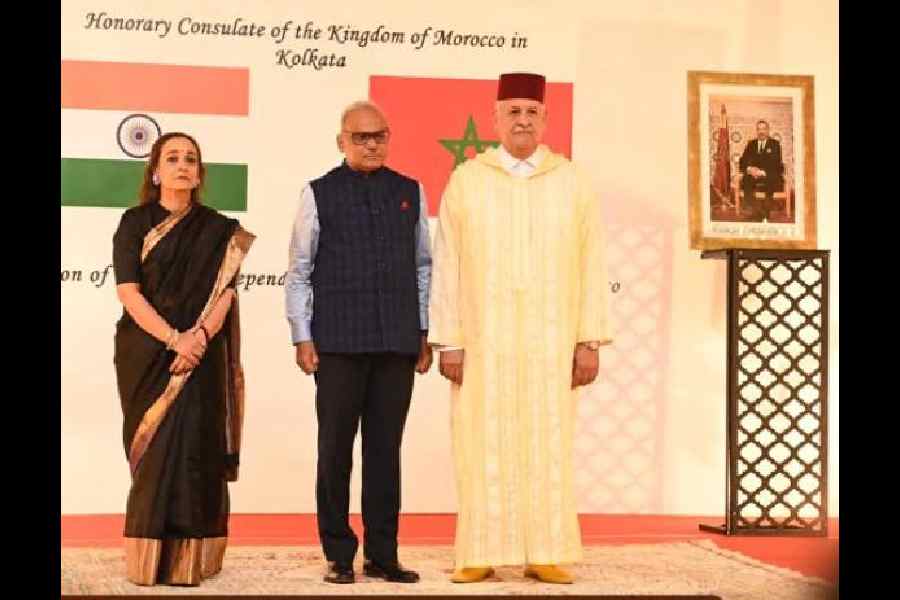The 68th independence day of Morocco was celebrated by the honorary consulate at Taj Bengal with the ambassador and his colleagues from the kingdom’s embassy in attendance.
Ambassador Mohamed Maliki cut a striking figure in his flowing jellaba, with a tarbouch on his head, and every guest wanted to have a picture clicked with him. “Do you know that the convocation gown that you wear on graduation day is inspired by this dress?” he asked with a smile, when t2 wanted to know more about his gear.
This is because, he went on to explain, the University of al-Quaraouiyin, in Fez, the former medieval capital of Morocco, is said to be the oldest continually operating higher learning institution in the world. It was established in 857-859 as a mosque, after which it functioned as a madarsa, and was incorporated into the modern education in 1963 as a university. The Arabic name means ‘university of the people’.
Another point of interest for guests seeking to find out more about the African nation’s culture was the tea counter, which was serving Atay bin Naanaa, or mint tea. “This is the tea we have through the day. But in the south, the Sahara region, they have it with a lot of foam. The top two-third of the cup is filled with foam. This is done to keep sand from reaching the tea itself,” Kaderi Karima, the ambassador’s wife, explained to t2. “Every region has its traditional dress, dialect and way of making tea,” she added.
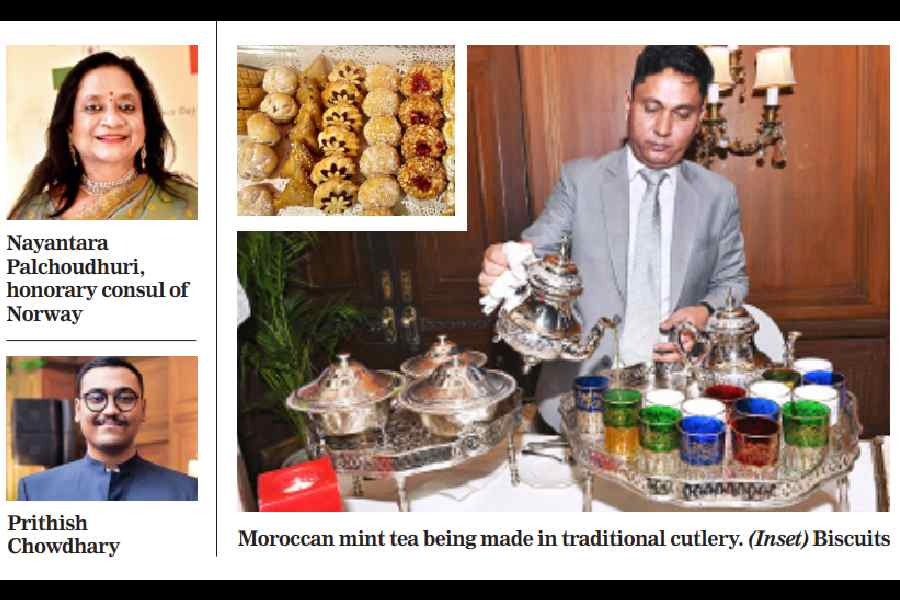
“Even the tea set is Moroccan, including the cups, and has come from our embassy,” said honorary consul Rashmi Chowdhary, who urged guests to also try out the biscuits. “Those have been baked at the embassy at the initiative of our ambassador’s wife,” she said.
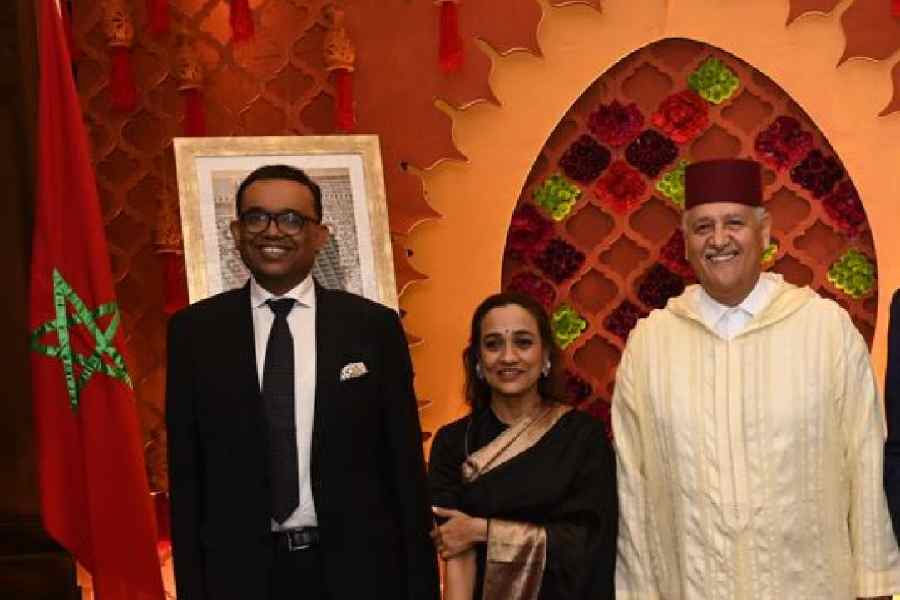
Ambassador Mohamed Maliki with honorary consul Rashmi Chowdhary and her husband Umesh, the honorary consul of Switzerland
The biscuits were delicious and came in a variety of shapes and makes. “These rectangular ones are Fekkas, these circular ones Ghriyba, that one is Briwe and this Sable,” Houda Abdouh, wife of counsellor Said Hijri, dressed in an elegant Moroccan kaftan, introduced each type on the tray.
When the ambassador got on stage for his address, he started by throwing himself a cheeky challenge. In a tangential and good-humoured reference to the not-to-be-proud-of habit of the city’s socialites to get chatting at national day receptions even at the cost of drowning out the ceremonial speeches, he said he had been warned about the difficulty of holding the attention of the audience in Calcutta.
Morocco, he pointed out, might be largely known through its football team’s World Cup exploits (the Atlas Lions were the first African and Arab nation to reach the semi-finals in 2022), but it was also the second oldest continuous monarchy in the world. “We have four imperial cities which have their individual identities — Casablanca, Fez, Tangier and Marrakesh. The fifth was destroyed in an earthquake. It is a country that connects Europe, Africa and the Americas,” he said, making a forceful case for investment, citing the tax benefits of making in Morocco and exporting from there to the US and Europe.
Chief guest from the state government, additional chief secretary Krishna Gupta, too mentioned the free trade agreement that Morocco has with the European Union and the US as also the prompt e-visa facility that has come into force for Indians visiting Morocco since last December.
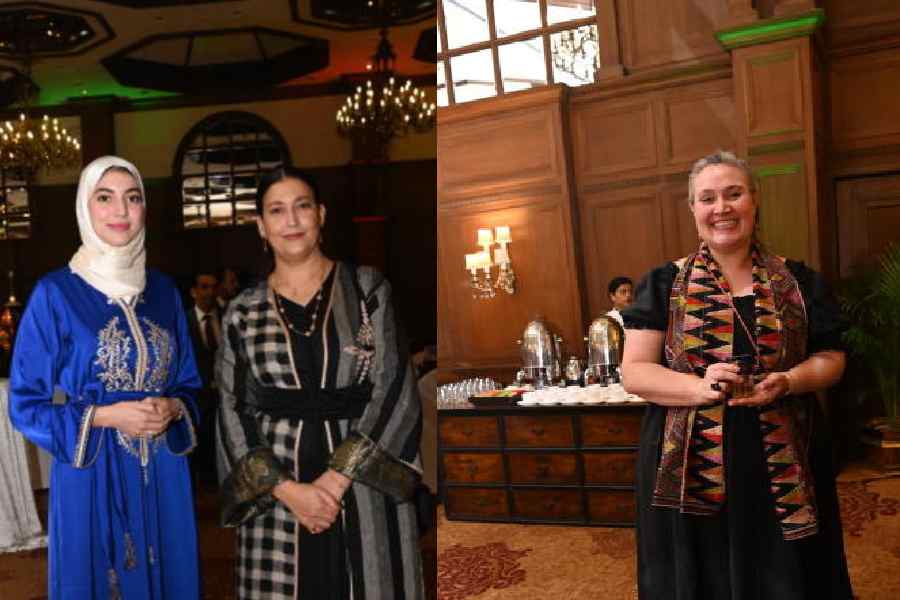
Kaderi Karima, the Morocco ambassador’s wife, and Houda Abdouh, wife of counsellor Said Hijri (left). US consul general Melinda Pavek
Could an evening about Morocco pass without a mention of the classic 1942 film Casablanca? The Humphrey Bogart-Ingrid Bergman-starrer has made the Moroccan city a part of popular cultural consciousness across the globe. “Rick’s Café (the film’s central meeting point) is still there. But there is not much of Moroccan people in the film, isn’t it?” Karima wondered aloud at t2’s reference to the film.
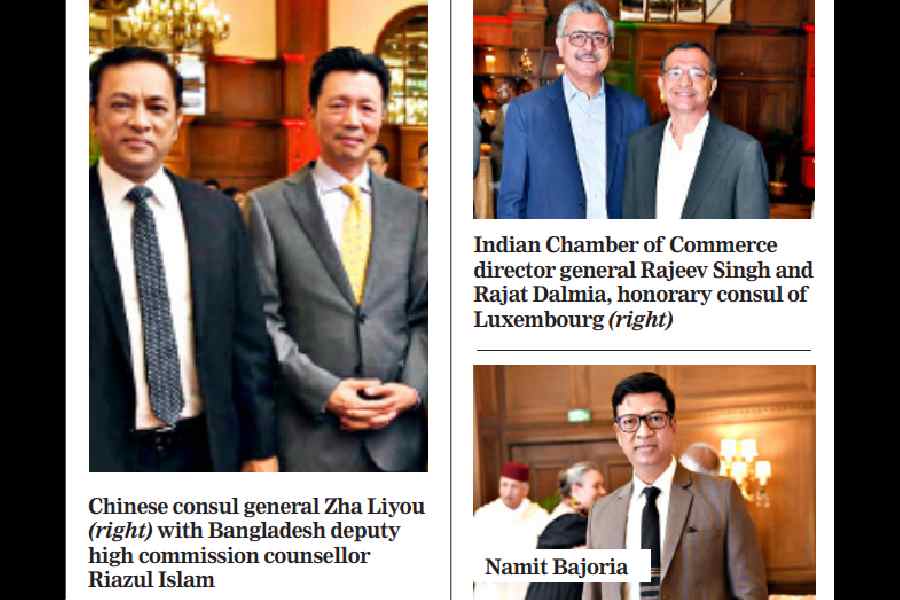
For an immersion in Moroccan culture, one would have to visit the country, stunning visuals of which were on view on a giant screen through the evening. And a single visit might not be enough. “Ninety-one per cent people who visit Morocco want to go back,” said the ambassador, quoting a survey.
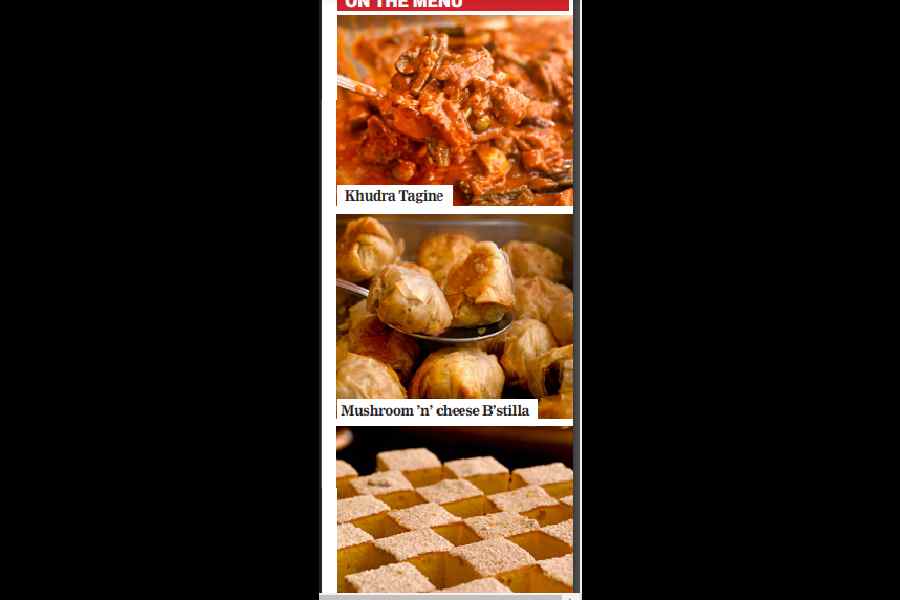
Moroccan orange cake
